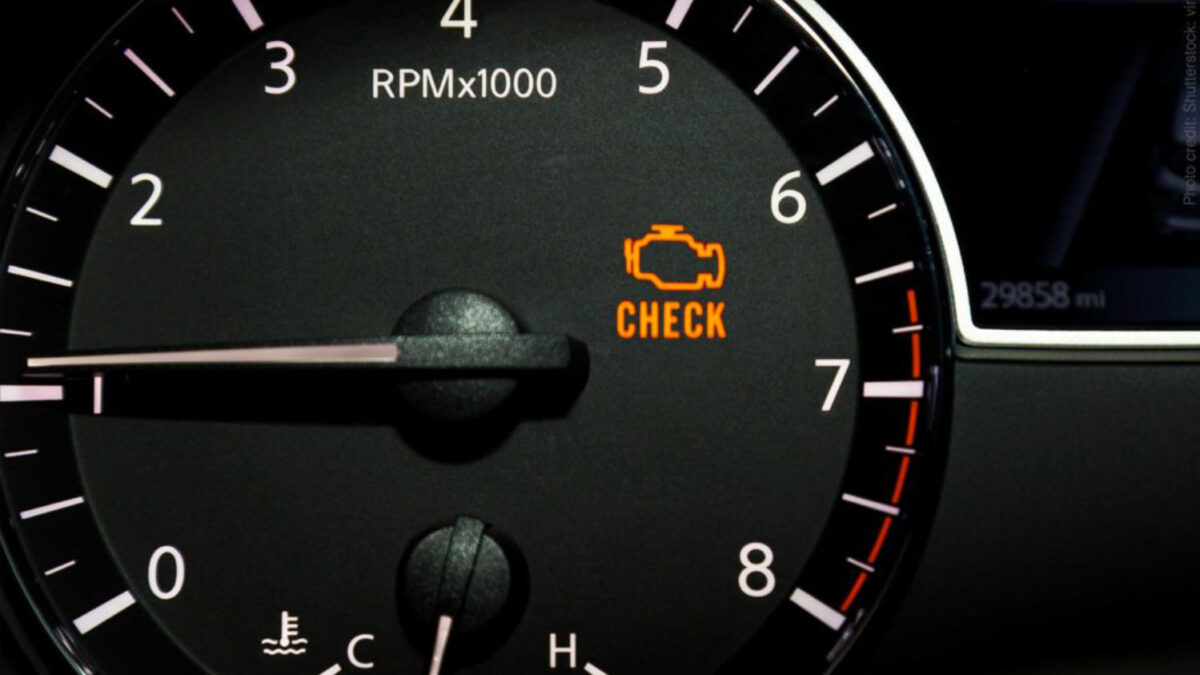Your engine oil is the lifeblood of your car. It keeps components lubricated, reduces friction, and prevents overheating.But just like any vital fluid, engine oil needs regular replacement to maintain its effectiveness. Neglecting an oil change can lead to serious engine damage and costly repairs.
So how do you know when it’s time to give your engine some fresh juice? Here are 5 key signs that your oil is past its prime:
1. The Illuminated SOS: Check Engine and Oil Change Lights
Your car’s dashboard is equipped with a network of warning lights, and two of the most important ones are the oil change and check engine lights. If either of these lights illuminates, it’s a strong indication that something is wrong with your oil or engine. It could be low oil level, dirty oil, or even a more serious issue. Don’t ignore these flashing SOS signals – get your car to a mechanic immediately to avoid further damage.
2. The Murky Depths: Checking the Oil Dipstick
Even if your dashboard lights remain silent, checking your oil dipstick regularly is a proactive approach to engine health. Pull out the dipstick, wipe it clean, and reinsert it. When you pull it out again, observe the oil’s color and consistency:
- Fresh oil: Golden amber with a translucent quality.
- Needs changing: Dark brown or black, opaque, and possibly gritty.
Gritty oil indicates the presence of contaminants, while darker oil signifies the breakdown of additives crucial for lubrication. In both cases, an oil change is due.
3. The Unwelcome Orchestra: Knocking and Ticking Sounds
Listen closely to your engine while idling or accelerating. If you hear unusual knocking or ticking sounds, it could be a sign of insufficient lubrication due to worn-out oil. These sounds are caused by metal components rubbing against each other, which can lead to severe engine damage if left unchecked. Don’t hesitate to get your car checked out by a mechanic to diagnose the source of the noise and prevent further trouble.
4. The Olfactory Offense: Burning Oil Smell
Do you detect a burning oil smell coming from your car’s vents or exhaust? This can be a sign of an oil leak or the oil burning inside the engine due to excessive wear and tear. An oil leak can not only deplete your oil levels but also damage surrounding components. Burning oil, on the other hand, indicates serious engine problems that require immediate attention from a mechanic.
5. The Performance Plunge: Reduced Power and Fuel Efficiency
Over time, worn-out oil loses its viscosity and lubricating properties. This can lead to increased friction within the engine, resulting in decreased power output and fuel efficiency. You might notice your car struggling to accelerate, requiring more effort to reach desired speeds, and guzzling more gas than usual. These are all indicators that your engine is not running at its optimal level, and a fresh oil change can often work wonders in restoring its performance.
Bonus Tip: Consult Your Owner’s Manual
Remember, every car has its own unique maintenance schedule, including recommended oil change intervals. Consult your owner’s manual for the manufacturer’s specific guidelines based on your car’s make, model, and driving conditions. Sticking to the recommended schedule is crucial for keeping your engine healthy and your car running smoothly for years to come.
By paying attention to these key signs, you can ensure that your engine oil is always up to the task of protecting your car’s most vital component. Remember, neglecting oil changes is a recipe for trouble, so don’t let your engine oil become a rogue agent. Stay alert, listen to your car’s whispers, and give it the TLC it deserves with regular oil changes. Your engine will thank you for it!

